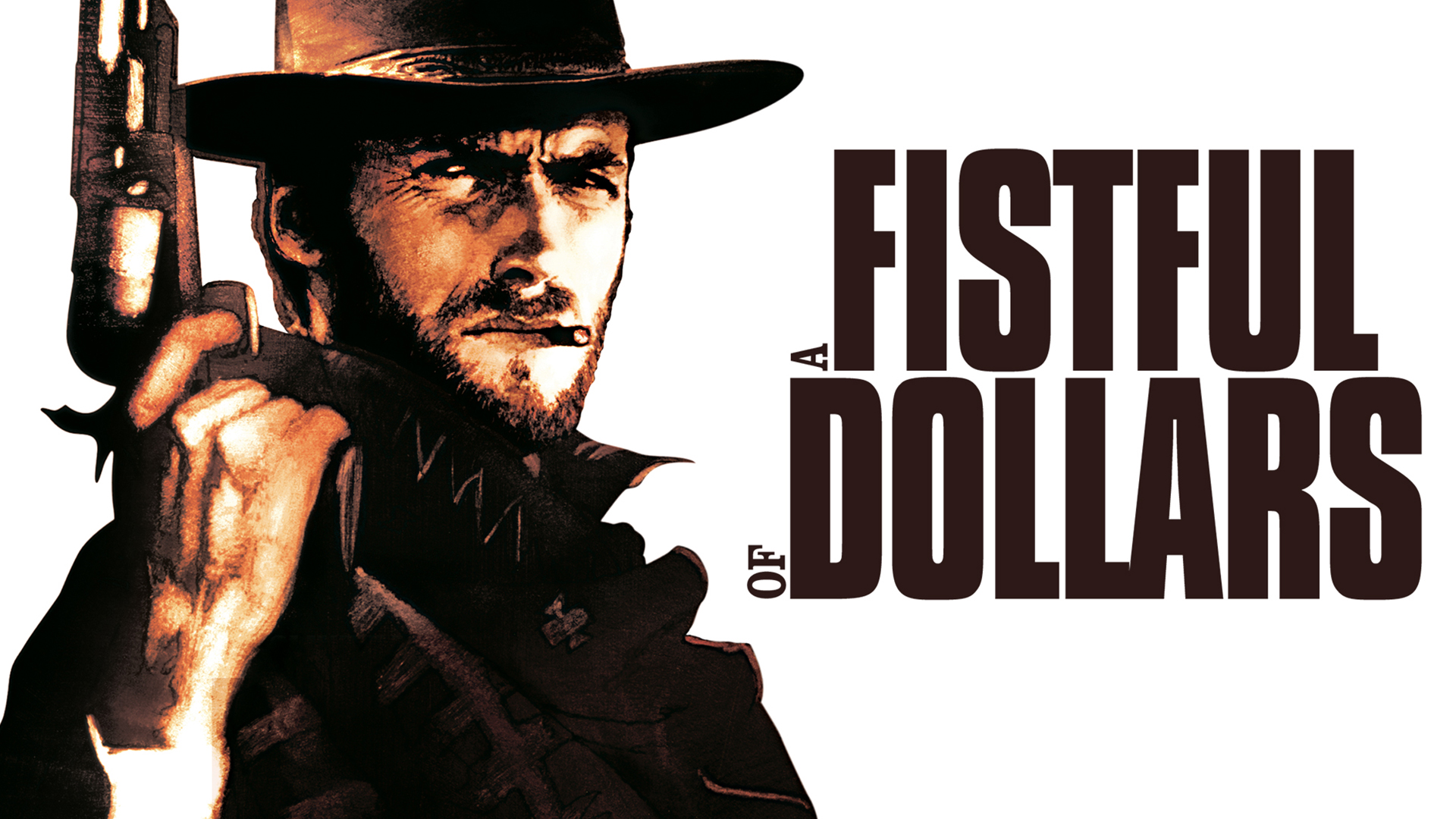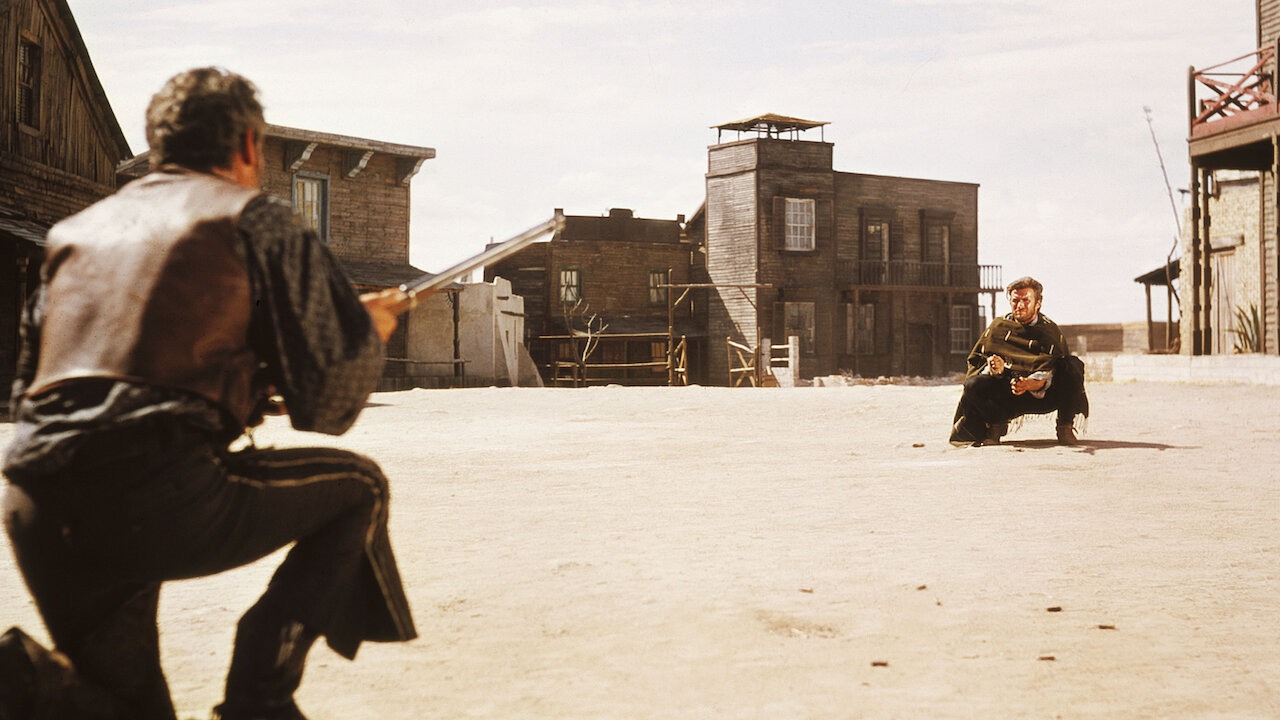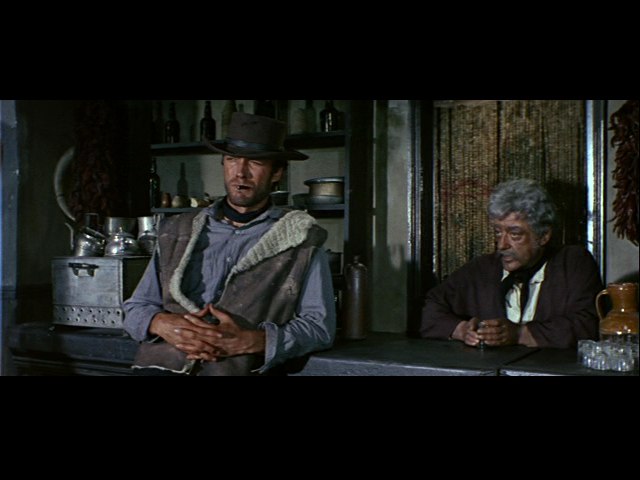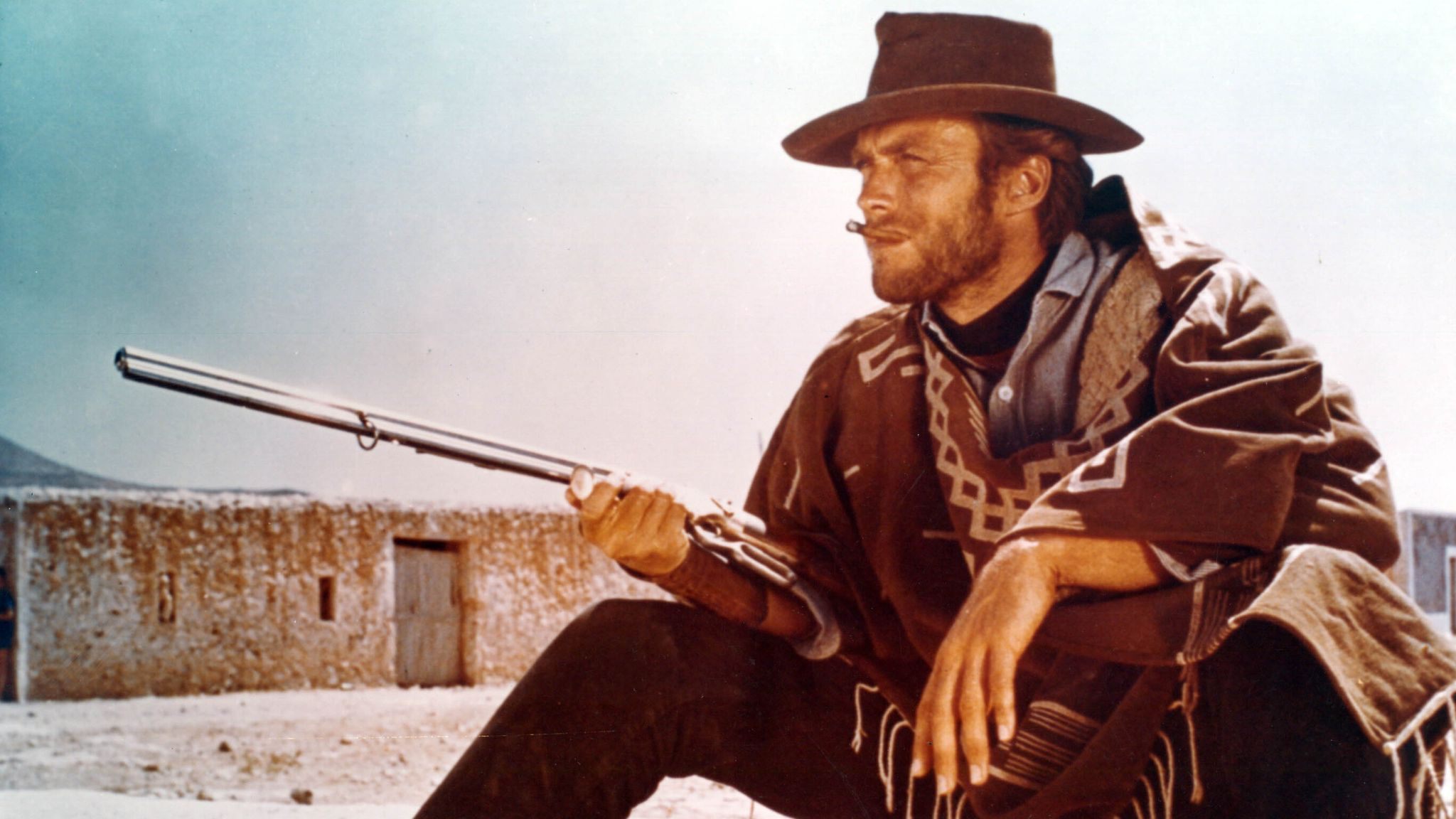A Fistful of Dollars

A Fistful of Dollars (1964), directed by Sergio Leone, is a defining film in the genre of Spaghetti Westerns, which revolutionized the Western genre during the 1960s. The film marked the beginning of the “Dollars Trilogy,” which would eventually include For a Few Dollars More (1965) and The Good, the Bad and the Ugly (1966). Starring Clint Eastwood in his iconic role as the Man with No Name, this film not only changed the landscape of Western films but also elevated Eastwood to stardom, helping to define the modern action hero archetype.
The film is set in the desolate, dusty town of San Miguel, caught in the grip of a violent power struggle between two feuding families: the Rojos and the Baxters. The film opens with the arrival of a mysterious stranger, played by Clint Eastwood, who enters the town with no apparent allegiances. The Man with No Name is a drifter who initially appears indifferent to the conflict at hand but soon sees an opportunity to make money by playing both sides against each other. This central character, with his cool demeanor, sharp instincts, and willingness to get his hands dirty, is one of the most iconic figures in film history.
The Man with No Name’s motivations and moral code are ambiguous, adding to the film’s complexity. He is neither a traditional hero nor an anti-hero, but a character who operates according to his own set of rules. He manipulates the rival families, tricking them into believing that he is working for the other side while cleverly advancing his own interests. This morally grey character is a stark contrast to the clean-cut, noble protagonists that were common in traditional American Westerns, giving A Fistful of Dollars a distinct, more cynical tone. This character complexity set the tone for the Spaghetti Western genre, where characters were often more morally ambiguous and the lines between good and evil were blurred.
One of the most important aspects of A Fistful of Dollars is its revolutionary approach to the Western genre. Before this film, Westerns were often set in wide-open spaces with clear-cut heroes and villains. However, Leone’s film introduced a darker, more stylized vision of the Old West. The film’s sparse dialogue, slow pacing, and emphasis on tension through long, drawn-out scenes marked a departure from the more conventional, action-heavy Westerns of the time. Leone’s use of close-ups on characters’ faces, particularly during intense standoffs, became one of the film’s trademarks and was later adopted by many filmmakers in the genre. These stylistic choices would go on to influence not only other Spaghetti Westerns but also countless films in various genres.

The music of A Fistful of Dollars is another standout feature that has helped cement the film’s legendary status. Composer Ennio Morricone created a score that perfectly complemented Leone’s vision, using an unconventional mix of sounds and instruments to evoke the harsh, isolated atmosphere of the desert. The iconic whistle and the haunting melodies became synonymous with the film and the Spaghetti Western genre as a whole. Morricone’s score gave the film an emotional depth and tension that heightened the stakes of every encounter, and it remains one of the most recognizable film scores in cinema history.

The film’s success was not only in its innovation but also in its international appeal. Although A Fistful of Dollars was initially dismissed by critics in the United States for its violent and untraditional approach, it quickly gained a cult following and became a box-office hit worldwide. Its success in Europe, particularly in Italy and Spain, helped launch the careers of Leone, Eastwood, and Morricone, and it became one of the most significant films in the Spaghetti Western subgenre. The film’s success led to sequels and inspired a new wave of Western films that emphasized gritty realism, morally complex characters, and stylized violence.

In conclusion, A Fistful of Dollars is a landmark film in the history of cinema. Through its innovative storytelling, unforgettable characters, and unforgettable music, it reshaped the Western genre and paved the way for a new era of filmmaking. The film’s influence continues to be felt today, not only in Westerns but in action films of all kinds. Clint Eastwood’s portrayal of the Man with No Name remains one of the most iconic performances in film history, and Sergio Leone’s direction established him as one of the great filmmakers of his generation. A Fistful of Dollars stands as a timeless classic that forever changed the face of cinema.











